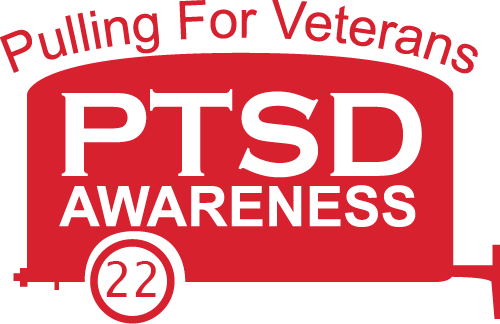PTSD disability is a very real thing. Post-traumatic stress disorder (PTSD) is a mental illness condition that occurs when a person experiences or witnesses a traumatic event. Individuals living with stressor related disorders often have to deal with intrusive thoughts, flashbacks, intense emotions, and other negative effects that can significantly impact their quality of life. For some people, PTSD can also lead to a disability that makes it challenging to complete regular life activities such as work, school, or social interactions. In this blog post, we will explore what PTSD disability is and the types of support available for those who experience it.
PTSD can sometimes result in a disability that can make it challenging for a person to maintain regular life activities. To diagnose someone with PTSD disability, one must undergo a medical examination by a qualified professional who can evaluate the impact of PTSD symptoms on a person’s daily functioning. If the symptoms significantly interfere with a person’s ability to work or perform routine activities, they may qualify for disability benefits through government programs such as Social Security Disability Insurance or Supplemental Security Income.
One of the reasons PTSD can lead to disability is that the condition can impact memory and cognitive function, making it difficult for individuals to engage in conversation, process information quickly or perform complex tasks. The other reason is that PTSD symptoms can cause individuals to feel emotionally unstable, making it challenging to control their reactions in stressful situations, which can hinder their ability to work or complete daily tasks.
There are many support options available to individuals living with PTSD disability. For example, counseling and therapy can be an effective way to learn coping strategies, manage symptoms and improve life skills. Additionally, medication can help reduce PTSD symptoms‘ effect on daily life, such as flashbacks and anxiety attacks.
Support groups are also available as a way of offering individuals living with posttraumatic stress disorder and disability opportunities to connect with others who are going through similar challenges. Support groups can also provide a space for individuals to discuss related issues, gain insights, and create social networks that can provide emotional support.
Employers can also support their employees with PTSD disability by providing workplace accommodations such as flexible schedule options, modified tasks, or quiet workspaces. Similarly, schools can offer accommodations to support students with PTSD, such as extra time on assignments, testing, or alternative work arrangements.

Understanding PTSD Disability Benefits
Post-traumatic stress disorder (PTSD) is a mental health condition that can develop after experiencing or witnessing a traumatic event. It can cause symptoms like anxiety, nightmares, flashbacks, and depression, making it difficult for individuals to perform daily activities. Those who suffer from PTSD may be eligible for disability benefits, but it can be challenging to understand the process of filing a claim and receiving compensation. Next, we will help you understand the basics of PTSD disability benefits and how to apply for them.
Criteria
To receive PTSD disability benefits, a person must meet certain criteria. These include being diagnosed with PTSD, having proof of traumatic event(s) that caused the disorder, and being unable to work due to PTSD symptoms. It’s important to note that not everyone who experiences trauma develops PTSD and to differentiate between regular reactions to stress and PTSD symptoms. If you suspect that you may have PTSD, seek professional medical help to determine if your symptoms qualify for benefits.
Filing for Benefits
Once you have been diagnosed with PTSD, it’s time to file for disability benefits. You can apply for benefits online or in-person at a Social Security Administration (SSA) office. The application will require medical documentation of the PTSD diagnosis and proof that it affects your ability to work. After filing the initial claim, the SSA will review your case to determine eligibility. Be aware that the process may take several months, and it’s essential to have the right documentation to increase your chances of approval.
Approval Process
If your application is approved, you can expect to receive monthly benefits from Social Security Disability Insurance (SSDI). The amount of the benefit depends on your earnings history and the severity of your PTSD symptoms. Additionally, you may qualify for medical care through Medicaid or Medicare, depending on your income and other factors.
Medical Documentation
It’s essential to maintain medical documentation even after receiving SSDI benefits for PTSD. The SSA periodically reviews cases to ensure recipients still meet eligibility requirements. We recommend staying in contact with your physician to track your progress and update your medical records regularly.
PTSD disability benefits can be life-changing for those who need them, providing financial assistance and access to medical care. If you suspect you may have PTSD and cannot perform work duties, you may be eligible for these benefits. To file a successful claim, be sure to provide proper medical documentation and seek professional medical help. Remember that the application process may take time, but it’s worth it to achieve the financial support you need to manage your PTSD symptoms and get back to living a fulfilling life.

What If I Don’t Get Approved for PTSD Disability?
Post-traumatic stress disorder (PTSD) can significantly affect one’s ability to function daily, such as performing work tasks, interacting with others, and even downtime activities. If you’re experiencing symptoms that make it difficult for you to work due to PTSD, you may be eligible for disability benefits. However, what can you do if your application is denied? This blog post will tackle the next steps and options you can take if you’re denied PTSD disability benefits.
Assess Your Denial Letter
The first step is to read the denial letter thoroughly and find out the specific reasons why your application was denied. In most cases, the denial letter will have a list of things that you need to fix or provide additional information about for your reconsideration. Take note of any deadlines and keep copies of the denial letter and any other documents you send for documentation.
Ask for a Reconsideration
The next step is to request for reconsideration as soon as possible. You may submit new evidence that wasn’t available when you first applied to support your application.
File an Appeal
If your reconsideration is denied, then you can submit an appeal. An appeal can be held before an Administrative Law Judge who will determine whether to approve or deny your application. It’s best to remain patient during this process as an appeal can take upwards of two years to be approved.
Get Experts to Help
Suppose your PTSD disability claim is still denied after an appeal hearing. In that case, it’s highly recommended that you obtain the services of an experienced disability attorney or advocate. They can check to see if you are eligible for medical vocational allowance and ensure that you fulfil all the procedural requirements, gather all the supporting evidence, present your case before the judge compellingly, and follow up with the Social Security Administration.
The process of getting PTSD disability benefits can be stressful, and rejection can make things worse. If you’re denied PTSD disability, don’t be discouraged. You can still get the help you need by implementing the steps discussed above. Keep in mind that you need to stay patient throughout the process and give yourself time to heal. Lastly, remember that you are not alone. There are many resources available that can assist you while you navigate this process.
Understanding PTSD Disability – Signs and Symptoms
Post-Traumatic Stress Disorder (PTSD) is a mental health condition that can develop in people who have experienced or witnessed a traumatic event. It can happen to anyone, from military personnel to civilians. While some people can cope with PTSD, there are also those who need assistance and support, especially if it affects their daily life. One of the ways to access aid is by seeking a PTSD Disability Status. Lastly, we’ll break down the signs and symptoms of PTSD disability so you can better understand it and get the help you need.
Post Traumatic Stress Disorder (PTSD) Symptoms
Symptoms of PTSD can be categorized into four groups: intrusive memories, avoidance, negative changes, and hyperarousal. Intrusive memories can be flashbacks, nightmares, or emotional distress related to the trauma. Avoidance symptoms include avoiding places or people that may remind you of the incident. Negative changes in mood or thinking can be depression, anxiety, or self-blame. Hyperarousal symptoms include constant alertness, irritability, insomnia, or hypervigilance. Serious injury can also lead to depression, chronic pain, and much more. Note that the severity and length of symptoms vary from person to person.
PTSD Disability:
If PTSD affects your daily activities, it may be classified as a disability. The Social Security Administration (SSA) offers disability benefits that apply to PTSD cases. The benefits include medical care, financial aid, and support, while the process can take from several months to years. To qualify for PTSD disability, one must obtain a doctor’s diagnosis, reports, and medical records that support the condition’s severity.
PTSD Veterans:
PTSD is prevalent among veterans who have faced traumatic combat experiences. The Department of Veterans Affairs (VA) provides resources and support to vets with PTSD. Some of the care available includes treatment, medication, and financial compensation. The process starts with a medical evaluation, followed by a disability claim through the VA.
How to Get Help:
Getting help for PTSD does not mean you’re weak; it means you’re willing to take action and start healing. If you suspect or know that you have PTSD, seek help from a mental health professional who specializes in trauma. They can offer talk therapy, medication, and coping techniques. You can also reach out to support groups, friends, or family members who can offer comfort and understanding.
Conclusion:
In conclusion, PTSD can sometimes lead to disability that can create significant challenges for individuals. However, many support options are available to help individuals manage their symptoms and improve their quality of life, such as counseling, therapy, medication, support groups, and workplace or school accommodations. It’s important to seek appropriate support systems to live well with PTSD and find ways to achieve your goals. If you have PTSD disability, know that you are not alone, and there is always hope for recovery.

Pulling For Veterans
Pulling for Veterans strives to educate everyone on PTSD, symptoms, triggers, coping mechanisms and resources for support.



